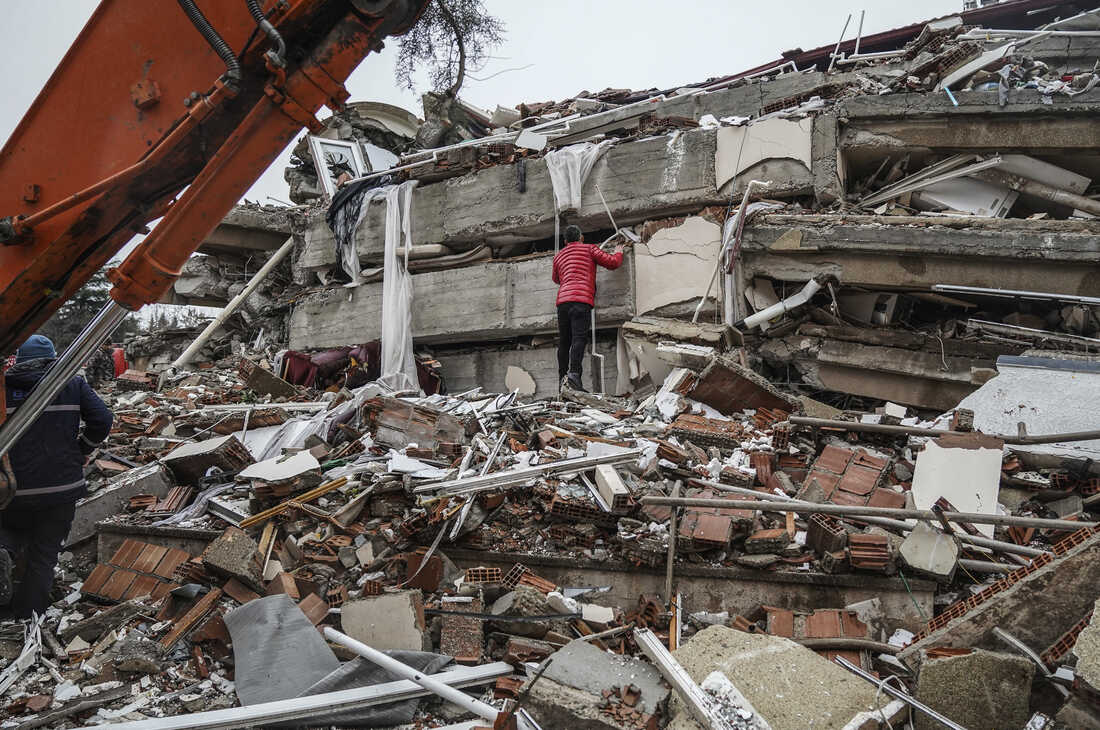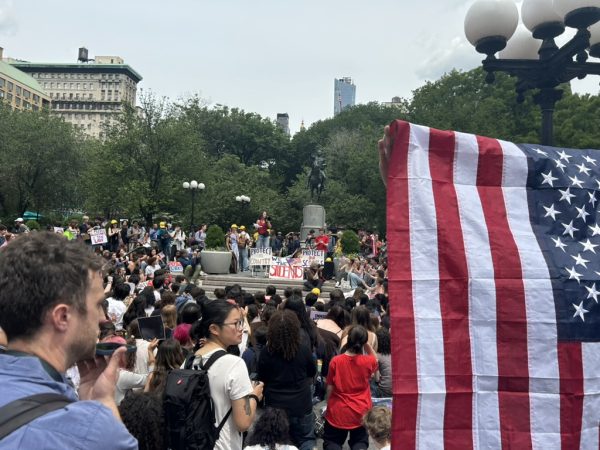Terror in Turkey: The Aftermath of a 7.8 Magnitude Earthquake
AP
A man searches for people in the rubble of a destroyed building in Gaziantep, Turkey, Monday, Feb. 6, 2023. A powerful quake has knocked down multiple buildings in southeast Turkey and Syria and many casualties are feared. (AP Photo/Mustafa Karali)
On February 6th, 2023, a massive earthquake struck parts of Turkey and Syria, killing an estimated 50,000 and injuring thousands more, making it the worst national disaster in a century. Just a few weeks after the disaster, I traveled to Turkey. Though I was not in any of the cities directly impacted by the earthquake, talking to locals who had visited the disaster sites or were familiar with the overarching issues provided me with more insight into the causes and consequences of this tragedy.
Why did the earthquake cause so much damage?
Locals explained that had the earthquake happened somewhere else, it likely would not have been as destructive. They explained that a large part of this is due to the poor construction of many buildings in Turkey. In order to make a larger profit, construction companies use less cement and iron than required by code, making it nearly impossible for the buildings to withstand earthquakes of this magnitude.
The government is supposed to oversee construction, which makes up a total of almost 10% of the country’s GDP, but a lot of corruption takes place between the government and construction companies. Even if the government is aware of faulty construction, politicians often do not want to tear down buildings for fear of upsetting homeowning voters. Furthermore, since many political campaigns are funded by construction companies, Turkish leaders are often less likely to regulate their donor’s companies. In response to the earthquake, journalists have exposed the faulty construction, and the government has promised to arrest the contractors responsible. It remains to be seen how much action will be taken.
How did the aftermath make the damage even worse?
The Turkish government often restricts social media and controls the news cycle. In order to avoid backlash for how the earthquake was handled, the government shut down Twitter in the country, compounding public confusion.
Orhan Kabas, a local, said, “The government turned off the internet because they didn’t want any provocations. If they didn’t do that they could have rescued more people because people were posting their location on Twitter or WhatsApp.” However, this prevented friends and family from communicating with each other and first responders from providing aid.
While Turkey is prone to earthquakes, the majority of Turkish citizens do not know how to respond when one strikes. Within the 80 seconds that the Turkish earthquake occurred, many people acted impulsively due to the lack of preparation, leading to lives being lost. From watching local news reports and speaking with survivors, Kabas learned that people panicked and tried to jump from their balconies, causing further injury to themselves and others.
According to Serdar Ozyilmaz, a Kusadasi resident and tour guide, a $40 billion conference to discuss earthquake prevention took place in the last decade to plan for future earthquakes after scientists predicted there would be one within several years. The government spared no expense to provide attendees with lodging and amenities, but made little subsequent investment in earthquake preparedness. “We pay extra taxes for the earthquake problem, but the government didn’t spend the $40 billion on earthquakes, but new roads or bridge constructions.”
“The military didn’t come on time. Our president wanted to show his power before the elections but he didnt know how big the problem was–10 cities were broken over there, and they couldn’t coordinate. Maybe if it was only one city, they would not have a problem.” Ibrahim Karaveli.
Since the military was not deployed, there was very little security, and looters were trying to steal the money and gold that is often kept in people’s homes, which caused even more conflict and disorientation for survivors of the disaster.
Eventually, after the military and rescue groups did arrive, Serdar explained that the president’s troops tried to take credit for rescues by showing up when the majority of the actual rescue work had been done and taking credit for the saves.
For its part, the government disaster response was mired in disorganization. When people most needed help, particularly medical attention, many could not receive it because so many hospitals were destroyed in the earthquake.
Though many tried to help provide support and resources to rescue efforts, disorganization caused many desperately needed rescue groups and volunteers to be turned away. The distribution of relief supplies was also compromised by the chaos as large amounts of food and clothing were either lost or discarded. The government wanted to control donations pouring in from around the world, even from third party sites, but local support flagged as many Turks fear the government will mishandle the funds.
What are the long term impacts of the disaster?
Beyond the obvious hardships that came with the earthquake, many secondary implications emerged. Refugees of the disaster were sent to live in hotels across the country indefinitely. Turkey’s economic dependence on tourism is now also threatened as peak season approaches in June.
Many universities have closed their dorms to students in order to provide shelter to those displaced by the earthquake. One University student in Ankara, Nuriye Asena, explained, “Especially coming out of COVID, it is very difficult for students who only recently returned to in-person learning to go back to virtual learning and leave school again while still paying for our education.”
At this rate, it will take many years, possibly even decades, and an estimated total of over 100 billion to repair the 500,000 apartments destroyed by the earthquake and assist displaced survivors, with the looming threat that some cities such as Antakya were destroyed beyond return and will be completely wiped out.
While it is not currently a big issue, once it reaches Turkey’s peak tourism season, this could spiral into bigger issues for an economy that heavily relies on tourism.
Hannah Koyfman (she/her) is the editor for Sports. Hannah enjoys learning from individuals around her...










































